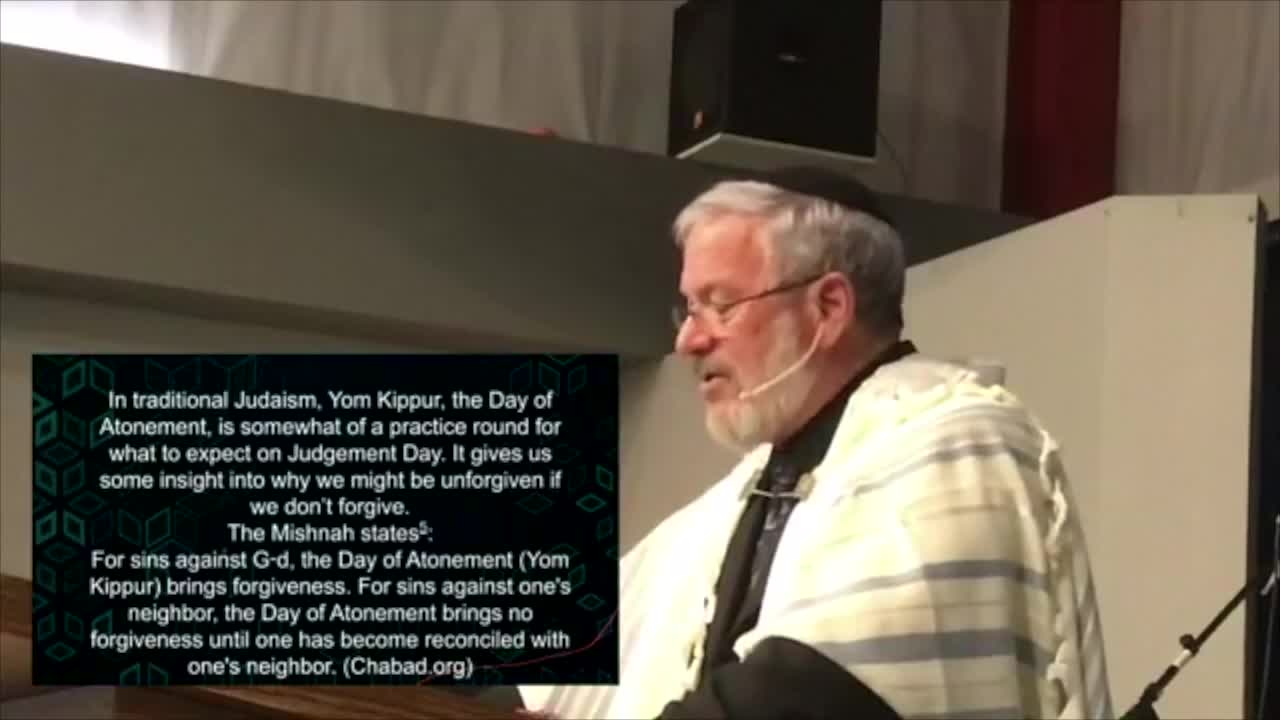Premium Only Content

Forgiveness uniquely Jewish
This is the first recorded moment in history in which one human being forgives another.
According to the Midrash, God had forgiven before this, but not according to the plain sense of the text. Forgiveness is conspicuously lacking as an element in the stories of the Flood, the Tower of Babel, and Sodom and the cities of the plain. When Abraham prayed his audacious prayer for the people of Sodom, he did not ask God to forgive them. His argument was about justice not forgiveness. Perhaps there were innocent people there, fifty or even ten. It would be unjust for them to die. Their merit should therefore save the others, says Abraham. That is quite different from asking God to forgive.
Forgiveness does not appear in every culture. It is not a human universal, nor is it a biological imperative. We know this from a fascinating study by American classicist David Konstan, Before Forgiveness: the origins of a moral idea (2010). In it he argues that there was no concept of forgiveness in the literature of the ancient Greeks. There was something else, often mistaken for forgiveness. There is appeasement of anger.
When someone does harm to someone else, the victim is angry and seeks revenge. This is clearly dangerous for the perpetrator and he or she may try to get the victim to calm down and move on. They may make excuses: It wasn’t me, it was someone else. Or, it was me but I couldn’t help it. Or, it was me but it was a small wrong, and I have done you much good in the past, so on balance you should let it pass.
Alternatively, or in conjunction with these other strategies, the perpetrator may beg, plead, and perform some ritual of abasement or humiliation, or take the route of offering financial compensation. This is a way of saying to the victim, “I am not really a threat.” The Greek word sugnome, sometimes translated as forgiveness, really means, says Konstan, exculpation or absolution. It is not that I forgive you for what you did, but that I understand why you did it – you could not really help it, you were caught up in circumstances beyond your control – or, alternatively, I do not need to take revenge because you have now shown by your deference to me that you hold me in proper respect. My dignity has been restored.
-
 8:25
8:25
Treeoflifehouston
1 year agoMultistreaming with Restream.io
8 -
 4:07
4:07
MaggieSalle
4 years agoAbigail and Forgiveness
612 -
 12:04
12:04
lorddraco3004
4 years ago $0.80 earnedStudent Loans Forgiveness
1.02K2 -
 33:10
33:10
Greenacres Missionary Baptist Church
4 years ago7.1.20 Wednesday Lesson - A JEWISH CHURCH
120 -
 32:07
32:07
The Perfect Faith Podcast
4 years agoWhat Forgiveness Looks Like
1771 -
 0:58
0:58
rebuildingthegates
4 years agoForgiveness is More Than Feeling Good
63 -
 1:04
1:04
Rockdust
4 years agoForgiveness is a weapon
116 -
 2:27
2:27
KTNV
4 years agoPossible student debt forgiveness
144 -
 2:21
2:21
WGBA
4 years agoThe Rebound: Student loan debt forgiveness
139 -
 31:05
31:05
The Why Files
2 days agoPeru's Most Terrifying Mystery | The Face Peelers
54K41